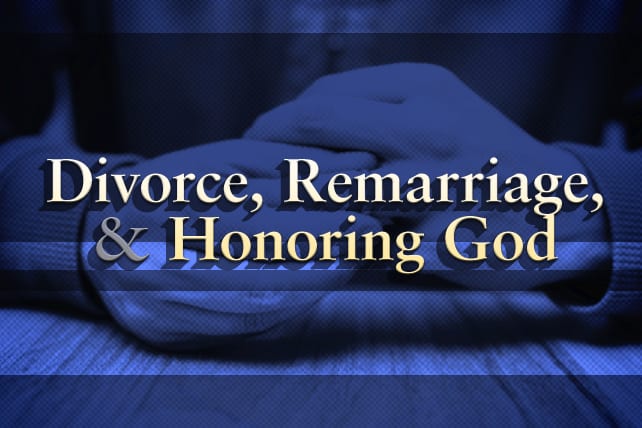Given your outspoken position on divorce and remarriage, we get a lot of questions in the inbox on this front. Here’s one from a podcast listener named Lisa. “Dear Pastor John, I read your long article about divorce and remarriage and agreed all along. Near the end you restated that only God can end a marriage. Yes. Then you went on to say that remaining in a second marriage is right. I noticed that you did not give Scripture to back that up. That’s where I no longer agreed. All the other scriptures seemed to only prove marriage to be impossible to end. Are there any passages to suggest that a divorced spouse should remain in their second marriage?”
What Should We Believe About Divorce and Remarriage?
It is important to point out that this question that is being asked is a question everyone has to face, not just me with my conservative view of divorce and remarriage. It is a question that everyone has to face, except those who think that all divorce and remarriage is biblical. If you have any limits at all in your view of divorce and remarriage, you will sooner or later meet a couple who has transgressed even your limits and are in a marriage that they should not have entered—that you think they should not have not entered, not just me.
So, this is a question then for almost every Christian. If the marriage that you are in was entered wrongfully, you shouldn’t have entered it. Should you stay in it? That is the question. And my answer is: Yes. Repent honestly before God, to each other and to him. Admit it should not have happened. Ask for forgiveness from each other and from God, perhaps from former spouses. And then keep your promises that you made to each other when you made your vows, rather than a second time breaking your word. And Lisa’s question is: Are there texts for that opinion? I mean, you are just saying that, Piper. What about the Bible? And I want to say here: I could be wrong about this. I could be drawing inferences from texts illegitimately. But there do seem to me to be three or four or more pointers in this direction in the Bible, and I will give them to Lisa now.
1) In Joshua 9 there is the story of the Gibeonites who, you may remember, hear about Joshua and the Israelites destroying cities, and they don’t want to be destroyed. So, they know they are going to be next on the list of destruction, so they pretend to be from a far away country, they lie to Joshua and they get him to promise that he will not kill them, because they are not in his territory. And Joshua makes a vow and swears to them before God that he won’t kill them. And then he finds out that they were lying to him. And it says in Joshua 9:19, “All the leaders said to all the congregation, ‘We have sworn to them by the Lord, the God of Israel, and now we may not touch them.’”
There are two reasons why they shouldn’t have entered this vow. One is because the Gibeonites were lying to them and two is because it says explicitly that they did not consult God—and God explicitly intended for the Gibeonites to be destroyed (see Joshua 9:14, Joshua 9:24). And now they are keeping the vow they never should have made under horrible circumstances, thus elevating the importance of promise-keeping or vow-keeping even when it was entered into wrongfully. And I am saying that perhaps suggests—I think it does suggest—that a vow you make to a person to be their husband or their wife till death do you part is not something to be taken lightly.
2) Jesus talked to the woman at the well in terms that suggest pretty strongly that he believed she had five genuine husbands and one non-genuine live-in. He put it like this: “Jesus said to her, ‘Go, call your husband, and come here.’ The woman answered him, ‘I have no husband.’ Jesus said to her, ‘You are right in saying, “I have no husband”; for you have had five husbands, and the one you now have is not your husband. What you have said is true’” (John 4:16–18).
Now, think about that. What does that imply?
It is true that the Greek—that includes this text here—does not have a different word for husband and man or husband and male. So, it could be translated: You have had five men and the man you now have is not your man. But even if you translate it that way, it doesn’t make sense unless you distinguish this sixth man from those other five in some way, because he says: This is not your man. Those were your men. This is not your man. This is not your husband. Those were your husbands. What was the difference? Well, the only thing I know to suggest is that they had somehow formalized the relationship in a ceremony in which they took some promises to create the relationship that was known as marriage—or husband and wife. So, it seems Jesus put some stock in calling those five men real husbands different from five live-in boyfriends that she never married.
3) Here is the third one. Interestingly enough, I was talking this over with all the team of the Together for the Gospel guys, and I won’t say who said it, but one of them, I thought, very provocatively pointed this out: Jesus does use the verb marry for what they should not do and do when he is forbidding them from doing it. Let me show you what I mean. “Whoever marries a divorced woman commits adultery” (Matthew 5:32).













